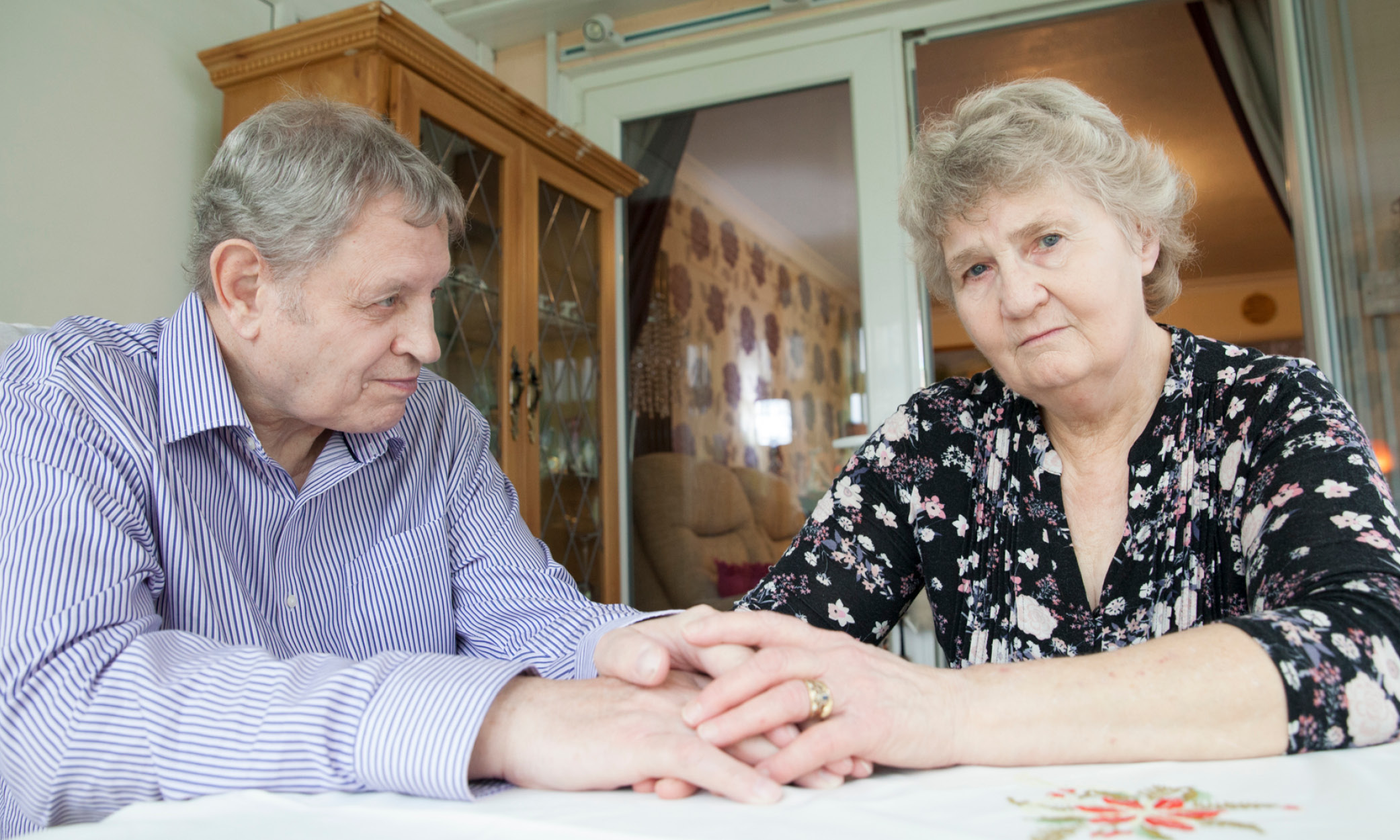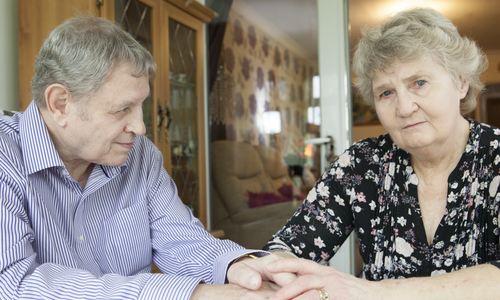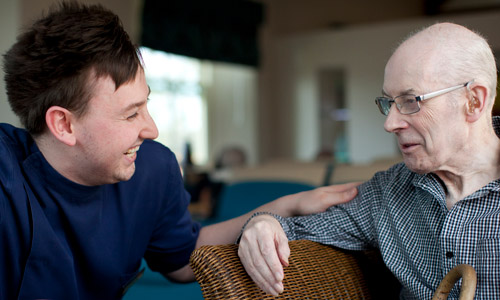Caring for someone can be difficult at the best of times, but the challenges have been increased and complicated by the events of the last year. For that reason, here are some tips to help carers and their loved ones cope during the COVID-19 pandemic.
According to the Office for National Statistics, before the pandemic started, 11 per cent of adults in the UK said they regularly provided service or help for a disabled, older or sick person not living with them. In April 2020, after lockdown was implemented, 48 per cent of UK adults said they were providing some kind of care for someone outside of their household. And our own research shows that not only are there now more carers, but people are spending more of their time providing care. This could include doing things like shopping, cooking meals, providing personal care, assisting with internet access, paying bills, gardening, doing house repairs, washing and ironing.
Being or becoming a carer is challenging at the best of times. For many it’s extremely rewarding, but that doesn’t mean it isn’t hard sometimes. Whether it’s balancing care for younger children and an older parent, the emotional toll of seeing someone you love unable to do things they’ve always done or someone caring for a spouse or partner in the home – it’s never easy. The pandemic and restrictions have only made it more difficult.
Looking for support
Every year, Age UK’s Advice Line receives thousands of calls from people looking for information and advice relating to support services to help older and disabled people to continue living in their own homes as safely and as independently as possible. From April 2019 to September 2020, the helpline received 23,352 enquiries about community care. However, the beginning of the pandemic saw 2,989 calls about care in March 2020 – the month the first coronavirus lockdown began in the UK. This figure was more than any other month during the previous year.
Unfortunately, as well as restrictions and concerns about spreading the virus, the delivery of many adult social care services, in addition to respite services for carers, have been disrupted, making this a challenging time for carers and their loved ones.
Age UK has put together some useful tips for both new and long-standing carers to help them keep the people they look after happy and healthy during the pandemic.
1. Look after yourself
You’re probably so used to putting the needs of the person you care for before your own, so our first tip is to consider your own wellbeing. We’ve put you first to think about this for a few minutes, guilt-free.
As well as rewarding, being a carer can be physically, emotionally and mentally draining so it’s important to take time to look after yourself. If you don’t, you risk becoming too exhausted to care for your loved one and get on with enjoying your own life.
Make it a priority to eat properly, exercise and get enough sleep. Try to carve out some time for yourself to do things you enjoy, whether it’s going for a walk, reading a book or having a bath.
Be sure to accept offers of help from others and reach out for help when you need it too. If you can, build a support network around you by reaching out to friends and family for emotional and practical support. And don’t be afraid to seek professional help either. Going to see your GP or calling a charity helpline could give you the practical and emotional support you need to keep going.
In addition, be sure to follow the latest government pandemic guidelines to help keep you and your loved one safe.
2. Encourage the person you care for to follow a routine
Whether the person you care for has been shielding or just going out less than usual, it might be difficult for them to stick to a routine at the moment. Having little to no structure to the day can lead to stress, anxiety and low mood.
The routine doesn’t need to be their whole day, but encouraging your loved one to do simple things, such as getting up, going to bed and eating meals at the same times every day, can make a real difference. Help them to plan their days’ activities to keep them stimulated and in a rhythm. It could be as simple as doing a crossword over breakfast, watering the plants each morning, pencilling in reading time after lunch, taking exercise every afternoon or arranging weekly video calls with friends and family.
3. Make sure they’re eating enough
Feeling anxious, stressed or isolated can affect your appetite and can lead to undereating or overeating.
In an ideal world we should all try to eathealthy and satisfying meals and get our five-a-day quota of fruit and vegetables and plenty of protein. Encourage them to eat regularly to avoid dips in blood sugar, which can lead to low mood. It’s just as important to stay hydrated too.
However, the most important thing is that they’re eating enough – whatever foods that might be. Two portions of fruit and vegetables is better than none, and an unhealthy snack such as a slice of cake is better than eating nothing at all and risking becoming malnourished.
4. Help them to stay active
Physical activity has the potential to significantly improve quality of life and reduce the risk of developing serious illnesses. It’s also a natural mood booster.
Everyone’s physical abilities and limitations are different. Spend some time with the person you care for thinking about what exercises they might like to try or be able to manage.It might be a short walk or following a home workout routine online with some chair exercises. Gardening, carrying shopping and doing light housework like dusting and vacuuming can also help someone stay active, so should be encouraged if they are physically able.
5. Encourage social connection
According to research gathered by Age UK before the pandemic, almost 2.6 million people aged 65 and over speak to three or fewer people they know in a typical week. Unfortunately, the restrictions that have been put in place have not helped this situation. Loneliness can have a devastating impact on a person’s physical and mental wellbeing, making them more vulnerable to an array of health problems, including heart disease, stroke, high blood pressure, dementia and depression.
Check in with the person you care for regularly. Whether you go for a walk with them, talk to them on the telephone, write them a letter or use video call apps like Facetime and Skype, keeping in touch with the person you care for is sure to help alleviate feelings of loneliness.
You could also offer them practical support, such as help with downloading apps or using the internet, so they can stay connected with family and friends during this time. From using social media to get in touch with old friends to making new friends online through shared hobby and interest groups, the internet can offer a lifeline to people struggling with isolation. You should also be able to find specialist support services online.
You are not alone
We hope these tips are useful, but they might not be suitable or not realistic for you and the person you care for.
You may have taken on lots more caring responsibilities because usual services or support network of friends and family might not have been able to help as they usually would.
But you’re not alone. There is support available and people ready to listen. For more information, visit this page or call the Age UK Advice Line on 0800 678 1602, which is open from 8am to 7pm, every day of the year.





